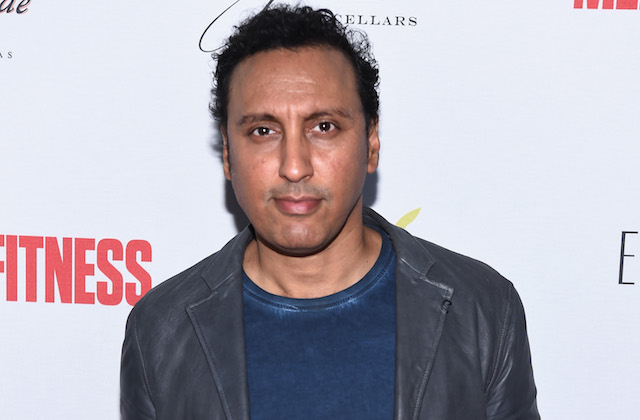The War on Terror brought Muslim Americans more visibility than ever before—visibility that routinely only portrayed them as terrorists, would-be terrorists or terrorists’ passive victims. With the looming spectre of future policies that paint all Muslims with a racist brush, five Hollywood showrunners and writers discussed the importance of these depictions for a roundtable organized by The New York Times.
The roundtable included Aasif Mandvi ("The Daily Show with Jon Stewart"), Zarqa Nawaz ("Little Mosque on the Prairie"), Howard Gordon ("24"), Cherien Dabis ("Amreeka") and Joshua Safran ("Quantico"). The frank discussion is worth reading in full, but the following excerpts offer a glimpse into the larger conflict that has Hollywood asking about the future of Muslims on television.
Both Gordon (who created both "24" and "Homeland") and Safran are White men whose shows deal with terrorism, and Gordon in particular faced long-term criticism for the way "24" and "Homeland" cast White government agent protagonists against Brown-skinned terrorists. Gordon recognized that criticism in this statement:
["24"] had a writers’ room that did have people who were to the right but also the left. We weren’t taking talking points from Karl Rove, though, you know, Jack Bauer did stuff that was in a long tradition of Clint Eastwood. Suddenly he became the guy who was the poster child for Guantánamo and Abu Ghraib. And I had to explain that. Even "Homeland"—which really tries to talk about the folly of government, of American policy, of misunderstanding, misapprehension and has been called apologist for normalizing that—at the same time it’s also been thought of as racist.
Both Maandvi and Nawaz, who are Muslim, addressed the problems of potentially airing dirty laundry in a context that could reinforce negative stereotypes:
MANDVI: I think it becomes a difficult conversation, especially for somebody who is from a Muslim background. As an artist, you want to stay true to the narrative, and sometimes that goes against your activist agenda, which is to promote this positive image of Muslims. At the same time, to balance that with a truth that exists, in terms of my own experience with Islam, which may not always be necessarily positive.
NAWAZ: That is exactly what I was worried about when I made “Little Mosque on the Prairie.” I said, I’m going to talk about a mosque where the imam is going to be pro-woman, pro-young people, against this misogyny.
There was a lot of worry in the Muslim community—well, if you start to wash our dirty laundry in public, then everyone will say, "Oh, we always knew." But the opposite started happening, because the show was about a whole Muslim community, the good and the bad. And so they started seeing them as full human beings. What they started saying to me was, "This reminds me of my community, my synagogue, my church, my temple. We have the same exact debate you guys have."
Read the full conversation here.
